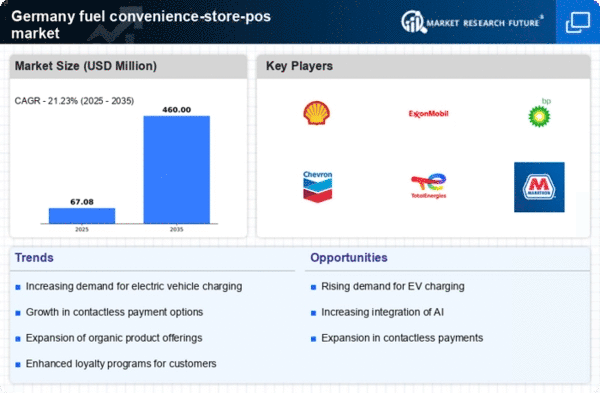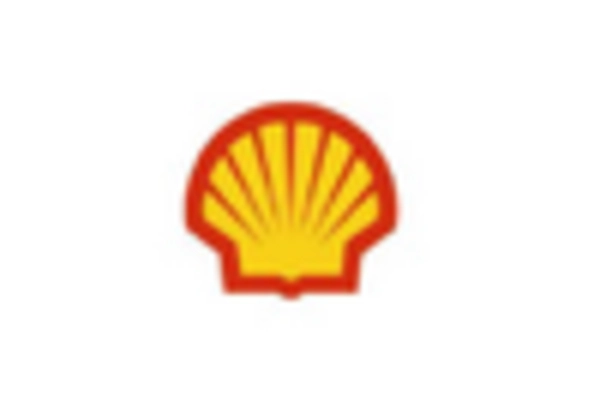Technological Advancements in POS Systems
The fuel convenience-store-pos market is experiencing a notable transformation due to rapid technological advancements in point-of-sale (POS) systems. These innovations enhance transaction efficiency and customer experience, which is crucial in a competitive landscape. In Germany, the integration of advanced software solutions allows for real-time inventory management and analytics, enabling retailers to optimize stock levels and reduce waste. Furthermore, the adoption of cloud-based systems is on the rise, providing flexibility and scalability for businesses. As of 2025, it is estimated that approximately 60% of fuel convenience stores in Germany have upgraded their POS systems to incorporate these technologies, indicating a strong trend towards modernization in the industry.
Consumer Behavior Shifts Towards Convenience
The fuel convenience-store-pos market is adapting to significant shifts in consumer behavior, particularly the growing preference for convenience. In Germany, consumers increasingly seek quick and efficient shopping experiences, prompting convenience stores to enhance their service offerings. This trend is reflected in the rise of ready-to-eat meals and on-the-go products, which have seen a sales increase of approximately 25% over the past year. Consequently, POS systems are being upgraded to handle diverse product ranges and facilitate faster checkouts. This evolution in consumer expectations necessitates that retailers invest in technology that supports these changes, thereby driving growth in the fuel convenience-store-pos market.
Rise of E-commerce and Omnichannel Strategies
The fuel convenience-store-pos market is witnessing a rise in e-commerce and omnichannel strategies, reshaping how retailers engage with customers. In Germany, the integration of online ordering with in-store pickup options is becoming increasingly popular. This trend allows convenience stores to cater to a broader audience, including those who prefer shopping online. As of November 2025, it is estimated that around 30% of fuel convenience stores have adopted such strategies, enhancing customer convenience and satisfaction. The implementation of sophisticated POS systems that can seamlessly manage both online and offline transactions is crucial for retailers aiming to thrive in this evolving market landscape.
Increased Competition and Market Consolidation
The fuel convenience-store-pos market is currently characterized by increased competition and market consolidation, which are reshaping the industry dynamics. In Germany, larger retail chains are acquiring smaller convenience stores to expand their market presence and enhance operational efficiencies. This consolidation trend is likely to intensify as companies seek to leverage economies of scale and improve their supply chain management. As a result, the demand for advanced POS systems that can support multi-store operations and provide centralized data analytics is on the rise. This shift not only impacts pricing strategies but also influences customer loyalty and brand positioning within the market.
Regulatory Compliance and Environmental Standards
The fuel convenience-store-pos market is significantly influenced by stringent regulatory compliance and environmental standards in Germany. The government has implemented various regulations aimed at reducing carbon emissions and promoting sustainable practices. This has led to an increased demand for eco-friendly products and services within convenience stores. For instance, retailers are now required to provide transparent information regarding fuel sources and their environmental impact. As a result, many stores are investing in POS systems that can efficiently track and report compliance data. This shift not only helps in adhering to regulations but also appeals to environmentally conscious consumers, potentially increasing market share in a competitive landscape.
















